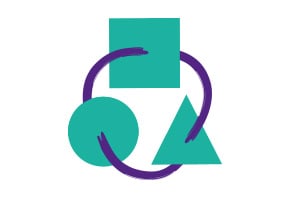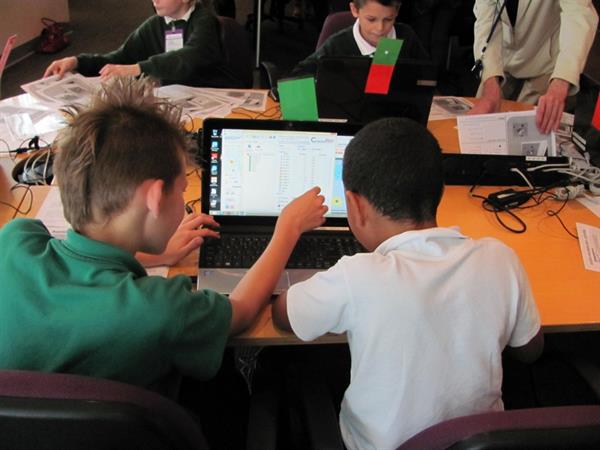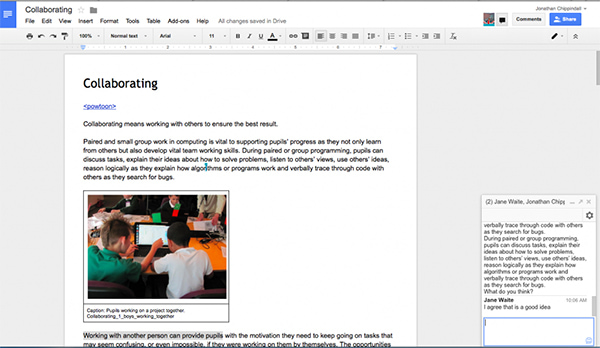
What is collaborating?
Collaborating means working with others and it frequently achieves the best results. Teachers plan together and observe one another to develop good practice. Collaboration motivates us to persevere with tasks which might otherwise seem too confusing or difficult. Computer scientists and software engineers often draw on or improve upon others’ work and coding, and this is facilitated greatly in open-source software.
When programming, many see ”pair programming” as a particularly effective way to write code, with two programmers sharing a screen and a keyboard. Typically, one programmer acts as the ‘driver’, dealing with the detail of coding, whilst the other takes on a ‘navigator’ role, looking at the bigger picture and offering guidance. The two regularly swap, so both build up experience in each role.

Pupils working on a project together
Why is collaborating important?
Problems and systems are decomposed into separate tasks. Software development involves different teams with distinct specialisms working together. In the example of a computer game, specialisms include the programming but also the design of the game, art and animation. Teams are dependent on and responsible to each other, so effective communication is vital. Online tools and websites such as GoogleDocs and GitHub enable files to be shared and simultaneously edited by collaborators scattered around the globe. In much modern software development, customers are considered part of the extended development team, helping finesse a good solution.

A screenshot of Google Docs, which allows multiple people in different locations to create and edit content whilst chatting in real time using the instant-messaging feature.
What does collaborating look like in the curriculum?
There are several characteristics which relate to collaboration, including: personal, social and emotional development; self-confidence and self-awareness; managing feelings and behaviour; making relationships. Collaborative group work provides an opportunity to share success and has long held a place in Primary education. In computing and other lessons, pupils’ skills in
logical reasoning, perseverance and debugging develop with opportunities to bounce ideas off classmates and to explain things to them.

